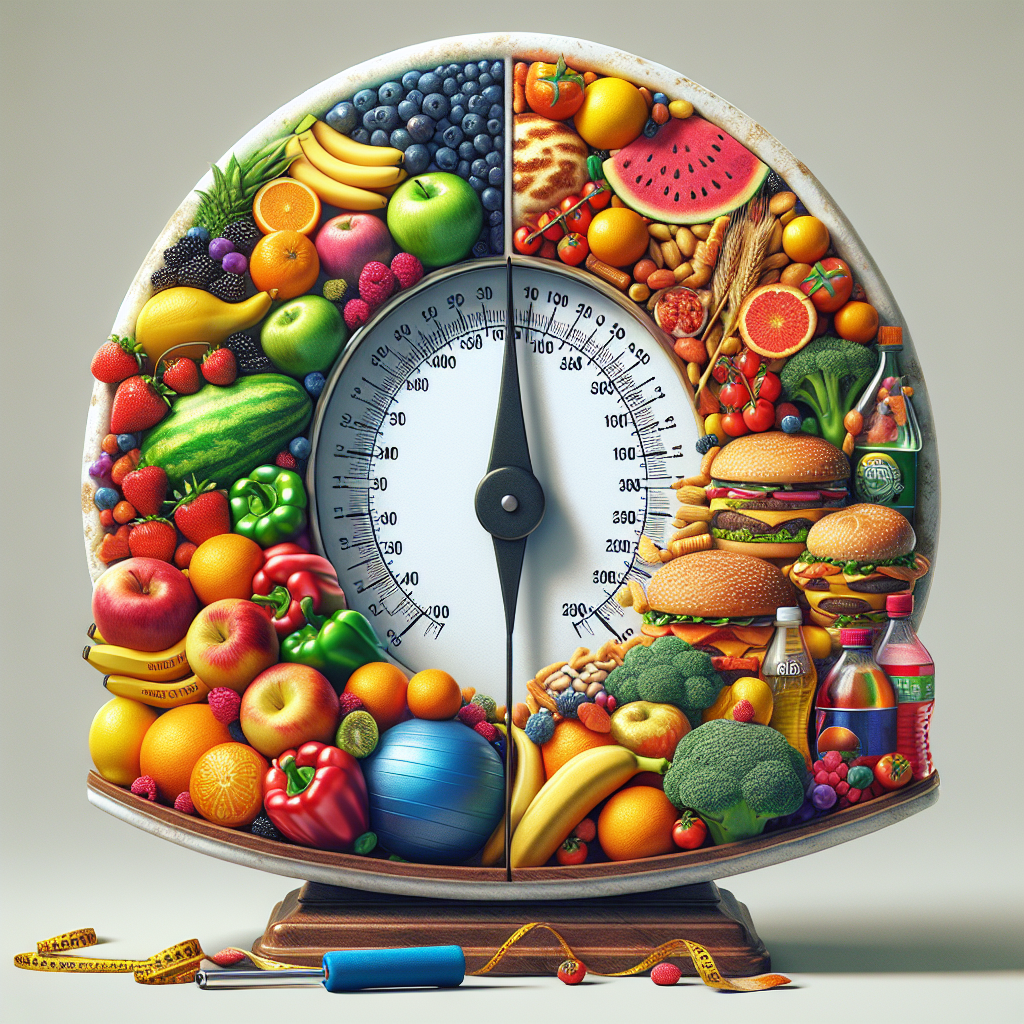The Dangers of Rapid Weight Loss and the Importance of Gradual, Safe Weight Reduction
Here’s a candid truth: it’s healthiest to aim for losing 4–8 pounds per month through a combination of adjusted diet and exercise rather than striving for rapid weight loss, as backed by the Centers for Disease Control and Prevention (CDC). Often, fad diets that promise quick fixes are not only hard to maintain but can also be detrimental to your health. For a balanced diet, the CDC emphasizes the importance of proteins, vegetables, fruits, low-fat dairy products, and whole grains, while advising against trans fats, cholesterol, and foods with high sugar content. Adding to this, the American Heart Association suggests at least 150 minutes a week of moderate-intensity cardio activity or 75 minutes of vigorous cardio activity, complemented with muscle-strengthening activities on at least two days of the week. If you’re experiencing rapid weight loss, it might be crucial for you to consult with your doctor as it could indicate an underlying condition or be a side effect of medication. In essence, a slow, gradual weight loss plan, incorporated with lifestyle changes in terms of dietary habits and physical activities, is the best path to follow for a safe and successful weight management journey.

Understanding Rapid Weight Loss
Defining rapid weight loss
Rapid weight loss, in simple terms, refers to losing weight at a fast or quick pace. It goes beyond the recommended safe weight loss of about 4–8 pounds a month, as indicated by the Centers for Disease Control and Prevention (CDC).
Factors that contribute to rapid weight loss
Numbers of factors contribute to rapid weight loss, these include severe dietary restrictions, extreme exercise routines, certain medications, and underlying medical conditions. Also, rapid weight loss could be a result of drastic weight loss procedures, such as surgery.
Common methods of rapid weight loss
Rapid weight loss is often supported by methods such as very low-calorie diets, extreme workout routines, weight loss pills or supplements, or bariatric surgery.
Myths about quick weight reduction
quick weight loss, unlike popular belief, isn’t a safe or effective method to achieve long-term fitness goals. Many presume it can be maintained, but rapid weight loss often leads to rapid weight regain due to the unsustainable nature of these intense routines.
Consequences of Rapid Weight Loss
Physical dangers of rapid weight loss
Rapid weight loss can lead to potential physical dangers, including nutrition deficiencies, muscle loss, gallstones, dehydration, and electrolyte imbalances. These dangers could progress to serious health issues if not addressed promptly.
Emotional and psychological impacts
The severe dietary restrictions and extreme physical activities associated with rapid weight loss can lead to emotional and psychological issues. These include increased stress, mood swings, body image issues, and even eating disorders.
Effects on overall health
Aside from the immediate physical dangers, rapid weight loss can negatively impact overall health in the long term. It can lead to weakened immunity, lowered metabolism, bone loss, and increased risk of heart disease, to name few.
Impacts on metabolism and body composition
Rapid weight loss can significantly impact your metabolism and body composition. It tends to lead to muscle loss, which can decrease your metabolic rate and make weight regain more likely. It also changes your body composition, often leaving you with a higher percentage of body fat despite losing weight.
The Misleading Appeal of Quick Fixes
Why fad diets and quick fixes are attractive
The allure of losing weight quickly is undeniable—it’s often seen as a quick pathway to achieving desired goals. Fad diets and quick fixes appeal to those who are looking for an ‘easy’ solution, despite knowing the potential health dangers.
The marketing tactics behind fad diets and weight loss pills
Fad diets and weight loss pills use strategic marketing tactics to make their products attractive. These tactics often play on people’s insecurities about their weight, promising quick and easy solutions while downplaying the potential health risks.
The reality about weight loss quick fixes
Despite their widespread popularity, the reality about weight loss quick fixes is dismal. Most people who try these methods end up regaining the lost weight, if not more, once they return to their normal diet or stop using the pills or supplements.
The Importance of Gradual Weight Reduction
Benefits of slow and steady weight loss
Slow and steady weight loss is more beneficial and sustainable in the long run. It allows your body to adjust to the changes gradually, reducing the risks of negative health effects. Moreover, it fosters healthy habits that can be maintained lifelong.
Importance of maintaining weight loss
Maintaining weight loss is just as important as losing it in the first place. Rapid weight loss methods often lead to a cycle of losing and regaining weight. Gradual weight loss, on the other hand, supports sustainable habits that can help maintain the lost weight.
Steps for a gradual weight loss
Gradual weight loss involves comprehensive lifestyle modifications including a balanced diet, regular physical activity, adequate sleep, and maintaining a positive mindset. It’s recommended to start with attainable goals, celebrate small victories and constantly reassess and modify goals as needed.

The Role of Balanced Diet in Weight Loss
Healthy eating basics
When it comes to eating healthily, it’s all about balance. The CDC recommends a diet rich in proteins, vegetables, fruits, low-fat dairy products, and whole grains. This ensures your body gets the necessary nutrients it needs to function optimally.
Ingredients to avoid for weight loss
For successful weight loss, it’s necessary to avoid certain ingredients. These include trans fats, cholesterol, and foods with high sugar content. These ingredients can contribute to weight gain and other health issues.
Recommended foods for weight loss and health
In addition to the broad food groups recommended by the CDC, certain foods aid weight loss by boosting metabolism and reducing hunger pangs. These include lean proteins, whole grains, fruits, vegetables, and healthy fats like those found in avocados and olive oil.
Importance of Exercise in Weight Loss
Recommended intensity and duration of cardio activities
Exercise is an integral part of weight loss. The American Heart Association proposes adults should engage in at least 150 minutes a week of moderate-intensity cardio activity or 75 minutes a week of vigorous cardio activity.
Muscle-strengthening exercises for successful weight management
Along with cardio activities, muscle-strengthening exercises are vital for successful weight management. They help maintain muscle mass, crucial for sustainable metabolic rates. These exercises should be done at moderate-to-high intensity on at least 2 days of the week.
Role of exercise in maintaining body composition
Exercise plays a key role in maintaining a healthy body composition. It helps decrease body fat while preserving or increasing lean muscle mass, leading to a healthier overall body composition.

Signs of Unhealthy Weight Loss
Indications of rapid weight loss due to underlying condition or medication
Rapid weight loss can be a symptom of an underlying condition or a side effect of certain medications. Conditions that can cause rapid weight loss include thyroid disorders, diabetes, depression, and others.
When to seek professional medical help
If you’re experiencing rapid weight loss without a known reason, it’s essential to seek professional medical help. This is particularly critical if the weight loss is accompanied by other symptoms such as fatigue, loss of appetite, or digestive issues.
Monitoring weight loss progress safely and effectively
Monitoring weight loss progress is essential to ensure it’s happening at a safe and healthy rate. This could involve regular weight checks, body composition analysis, keeping a food and exercise journal, or monitoring changes in clothing fit.
Comprehensive Lifestyle Changes for Successful Weight Loss
Elements of lifestyle changes for weight reduction
Lifestyle changes for weight reduction should be comprehensive, including diet improvements, increased physical activity, stress management, adequate rest, and positive mindset.
Tips to successfully implement and stick to lifestyle changes
Implementing lifestyle changes is more successful when you start with small, attainable goals. Progressively build upon these changes, rewarding yourself for milestones reached. Sticking to these changes becomes easier when they are integrated into your daily routine.
How lifestyle changes contribute to long term weight management
By making these lifestyle changes, you’re not just losing weight but also establishing healthy habits that promote long-term weight management. These changes can significantly modify your eating and physical activity habits, paving the way for sustainable weight management.

Gradual Weight Reduction Success Stories
Real life examples of successful gradual weight reduction
There are numerous success stories that highlight the effectiveness of gradual weight reduction. These show that while the process may take longer, the results are more sustainable and beneficial for overall health.
Key learnings from successful weight reduction journeys
Successful weight reduction journeys teach us the importance of consistency, perseverance, and patience. They reveal that weight loss is not merely about scaling down numbers, but about adopting a healthy lifestyle that brings about overall wellness.
The importance of perseverance and patience
While embracing gradual weight reduction, perseverance and patience are crucial. Weight loss is a journey and not a destination. It takes time to establish healthy habits, but with patience and determination, it’s entirely possible.
Conclusion: Balancing Weight Loss Goals with Health
In summary, rapid weight loss treatments may sound appealing because they promise quick results, but they often pose various health risks and rarely result in sustained weight loss. Gradual, safe weight reduction is instead the preferred method. It allows the body to adjust to changes over time, creates a positive attitude toward food and exercise, and most importantly, can be sustained in the long run. Adopting healthy lifestyle changes is the key to lasting weight management. It’s about finding the right balance between achieving weight loss goals and staying healthy. It may take longer, but remember, the journey to a healthier you is worth the time and effort.



Pingback: Understanding A Healthy Weight Loss In A Weight-Loss Program